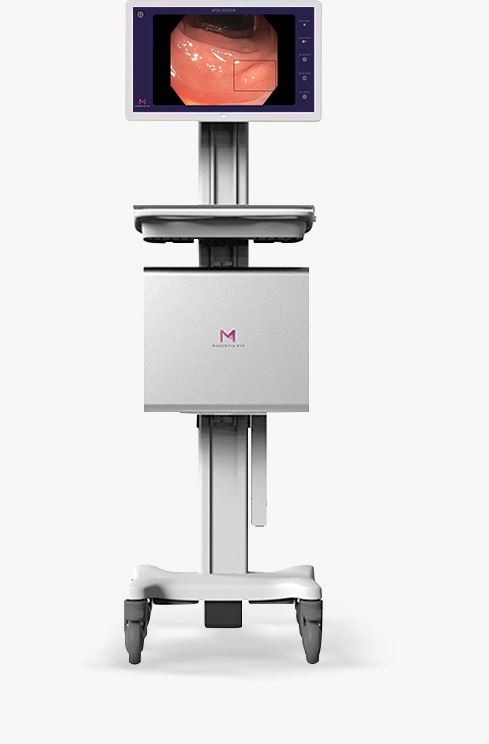
Image: The MAGENTIQ-COLO AI-aided colonoscopy technology improves adenoma detection rates (Photo courtesy of Magentiq Eye)
Colorectal cancer (CRC) is the third most prevalent cancer worldwide, and one of the deadliest. Typically, CRC begins with polyps or other precancerous growths in the colon or rectum. These can be spotted during a colonoscopy, a procedure where an endoscope with a camera is inserted through the rectum to examine the entire colon for anomalies. Despite its widespread adoption in many developed countries, the standard colonoscopy process has a notable drawback: high rates of missed and undetected adenomas. This means that even regularly screened patients remain at risk of developing colon cancer. As a result, the integration of Artificial Intelligence (AI) and Machine Learning (ML) into colonoscopy has emerged as a groundbreaking advancement in high-performance gastroenterology clinics, enhancing diagnostic accuracy and aiding in clinical decisions.
Now, new research has found that MAGENTIQ-EYE Ltd.’s (Haifa, Israel) AI-powered polyp detection system can improve adenoma detection rates (ADRs). The system, known as MAGENTIQ-COLO, fits seamlessly into the existing colonoscopy procedure, helping gastroenterologists identify polyps by providing information about their size, type, and maturity level, without disrupting the process. The MAGENTIQ-COLO device captures digital video signals from the endoscopy setup and applies deep learning algorithms in real time. It highlights detected polyps with a bounding box on the main or an auxiliary screen, drawing the doctor’s attention to potential concerns during the procedure.
Additionally, the system presents details about the polyp’s size and characteristics on the screen’s left side, offering the gastroenterologist vital insights for polyp identification and decision-making. After the procedure, videos with or without the bounding boxes can be stored and reviewed later. MAGENTIQ-COLO also generates a comprehensive report that includes the procedure’s duration and findings, viewable on the device’s monitor and exportable for further use. A comprehensive 14-month study across 10 top medical centers, involving 31 endoscopists and 952 patients, underscores MAGENTIQ-COLO’s leading performance in AI-assisted colonoscopy. This multicenter, randomized, controlled trial encompassed patients referred for non-immunochemical fecal occult blood test (iFOBT) screening or surveillance colonoscopy.
Participants were randomly assigned to either CAD-assisted or conventional colonoscopy, with a subset undergoing tandem colonoscopies (CAD followed by conventional or vice versa). The study focused on primary objectives like adenoma per colonoscopy (APC) and adenoma per extraction (APE), and secondary objectives such as the adenoma miss rate (AMR) in tandem colonoscopies. Results showed that MAGENTIQ-COLO boosted ADR by 7% in absolute terms. A higher ADR is closely linked to reduced CRC incidence and mortality. The study also assessed the system’s impact on AMR, revealing a 17% absolute reduction in AMR with the use of MAGENTIQ-COLO.
“It is important to note that measuring changes in both ADR and AMR in a single study is a novelty,” said Dror Zur, Founder and CEO of MAGENTIQ EYE. “In addition to FDA approval that we received last year, this milestone is a testament to the impact of MAGENTIQ-COLO™ in advancing the quality of colonoscopy and setting new healthcare standards in order to save more and more lives.”
